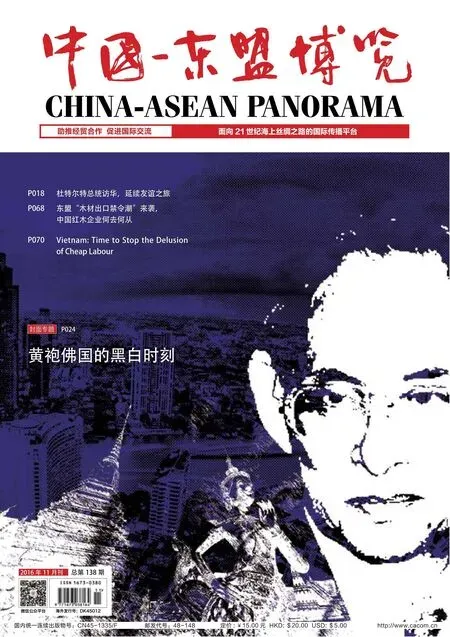Closer Links in Beibu Gulf Economic Zone in the Implementation of Urban Integration
Written by Li Yizhi / Translated by Xu Zhiliang
Closer Links in Beibu Gulf Economic Zone in the Implementation of Urban Integration
Written by Li Yizhi / Translated by Xu Zhiliang
As China’s urbanization advances, population movement between urban and rural areas and between different cities throughout the country is more frequent than ever before, having a profound effect on young people who are striving to achieve their ambitions. Against such a backdrop, certain benefits have also been brought to those who are contributing to the development of Beibu Gulf Economic Zone (BGEZ), the gateway oriented towards ASEAN-China cooperation.
Bus-like high-speed railway
Mr. Li Jianxian, born and raised in Nanning, the provincial capital of Guangxi, has been working for a real estate agency in Fangchenggang for ten years due to his job demands. As an offi ce worker, he shows special preference for urban integration. According to Mr. Li, his mother felt physically uncomfortable one day in January 2016 when his elder sister was traveling on business. On hearing this news, without hesitation, Mr. Li asked for a leave to return home by the bullet train from Fangchenggang to Nanning, timely helping his mother out of danger. With everything being settled well, Mr. Li securely got back to his work unit by the same vehicle travelling from Nanning to Fangchenggang at that night, without impact on his work in the next day.
As far as Mr. Li is concerned, the development of BGEZ, particularly urban integration, has produced considerable benefits to him and those who are travelling between Nanning and Fangchenggang. He added that, for the bullet train, not only is the travelling environment of train compartment spacious and comfortable, but also the price is affordable, only around 40-50 yuan. What’s more, the one-way travelling time between the two places is merely one hour, more convenient than taking bus.
“As the means of transportation improves, the costs of people’s work and life are being reduced, thus bringing direct benefits to the local people, particularly those who are working in other cities, and contributing to the urban construction,” said Mr. Li.
Closer links in BGEZ
Miss Hong Yuping born in Beihai, an employee of a foreign trade company, began her college life in Nanning fi ve years ago. She had been plagued by the charges for long-distance calls before 2013, because of routine phone calls to her parents each week. With the integration of communications being implemented in BGEZ, including Nanning, Beihai, Qinzhou, Fangchenggang and Chongzuo, the charges for phone calls among these cities began to be counted by city-call standards, saving some 10% of fees on phone bills compared with the past. “For me, I don’t have to worry much about handling price package services time and time again,” she said.
Speaking of the fi nancial integration, Miss Hong said that she had benefi ted a lot from this approach. Since December 31, 2013, the implementation of fi nancial integration involving operation, fi nancial institutions’ standards for clearing, aftersales insurance services, and credit information sharing platform began to be boosted, with a view to lowering the costs of cash flow. “My bank card available at college is still in use now. Moreover, I could travel on business among cities in BGEZ without carrying too much cash, because there are no handling charges when withdrawing money from the same banks in different places in the zone.”
Mr. Ma Zhen, a designer who graduated from Guangxi Normal University in Guilin, has been working in Chongzuo for nearly three years, along with his wife. “Prior to the integration of both health insurance and housing provident fund, I once worried about whether the welfare benefits would be the same as those granted in Nanning. But I am relieved now,” said Mr. Ma.
For the publicity of urban integration, Mr. Ma said, “I think there is a need for us to popularize the concepts and advantages of urban integration now. For example, the relevant departments could produce advertising videos and micro films associated with the local people’s life via Internet, which may work well. Besides, LED screens could also be put into use in counties and towns in the region.”
Overall, boosting the urban integration of BGEZ would accelerate the free fl ow of essential factors like talents and capitals among areas in the region.

